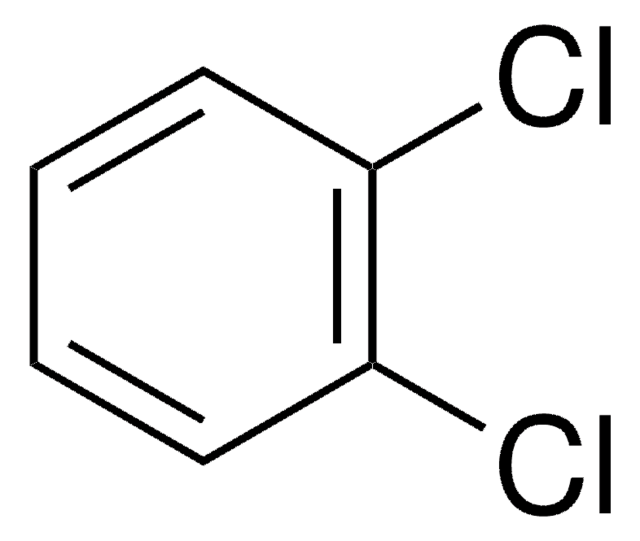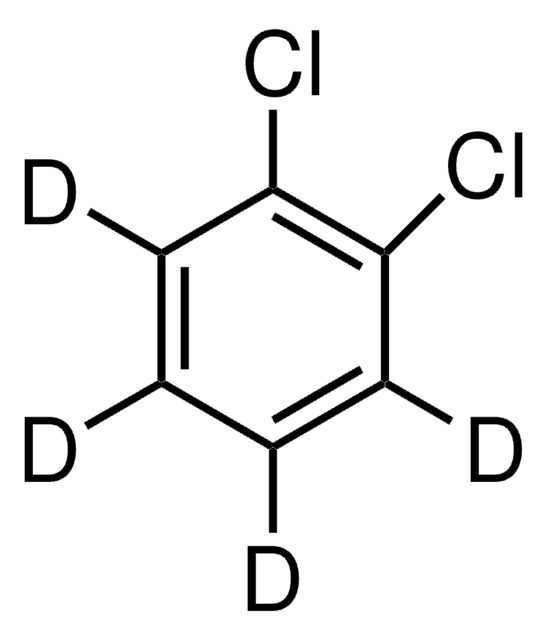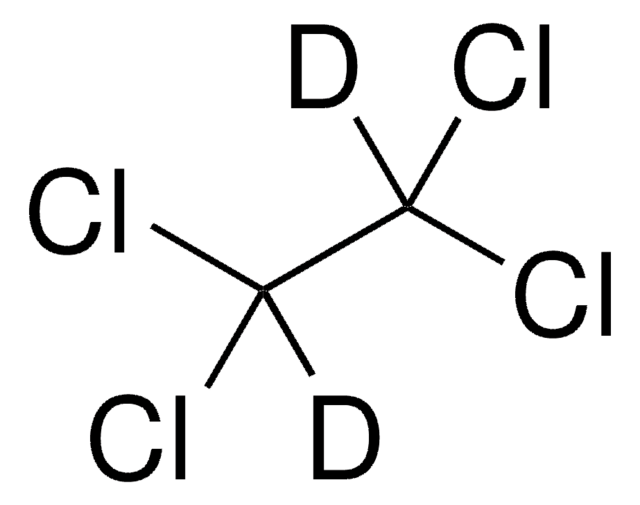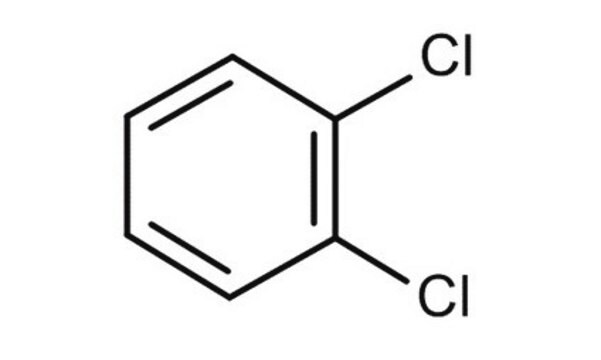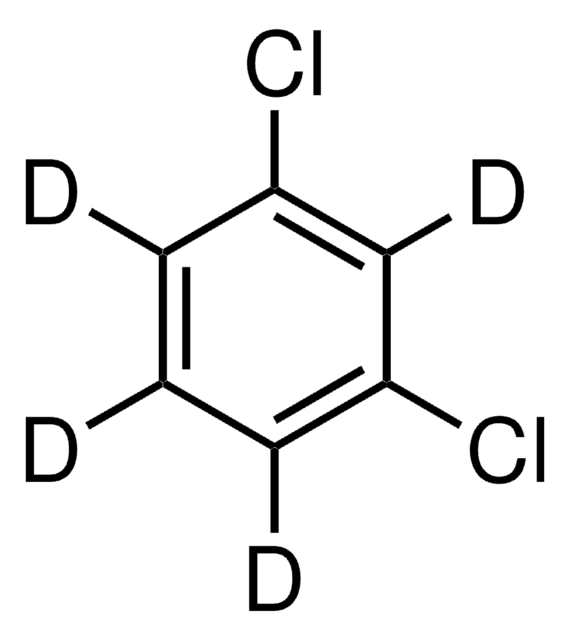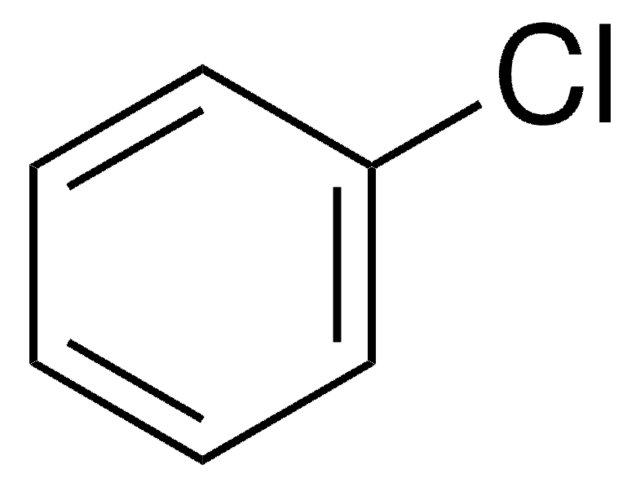612510
1,2-Dichlorobenzene solution
NMR reference standard, 5% in acetone-d6 (99.9 atom % D), NMR tube size 5 mm × 8 in.
About This Item
Recommended Products
grade
NMR reference standard
concentration
5% in acetone-d6 (99.9 atom % D)
technique(s)
NMR: suitable
NMR tube size
5 mm × 8 in.
SMILES string
Clc1ccccc1Cl
InChI
1S/C6H4Cl2/c7-5-3-1-2-4-6(5)8/h1-4H
InChI key
RFFLAFLAYFXFSW-UHFFFAOYSA-N
Looking for similar products? Visit Product Comparison Guide
Related Categories
Features and Benefits
Quantity
Signal Word
Danger
Hazard Statements
Precautionary Statements
Hazard Classifications
Aquatic Chronic 2 - Eye Irrit. 2 - Flam. Liq. 2 - Skin Sens. 1 - STOT SE 3
Target Organs
Central nervous system
Supplementary Hazards
Storage Class Code
3 - Flammable liquids
WGK
WGK 2
Flash Point(F)
1.4 °F - closed cup
Flash Point(C)
-17 °C - closed cup
Personal Protective Equipment
Choose from one of the most recent versions:
Certificates of Analysis (COA)
Don't see the Right Version?
If you require a particular version, you can look up a specific certificate by the Lot or Batch number.
Already Own This Product?
Find documentation for the products that you have recently purchased in the Document Library.
Customers Also Viewed
Our team of scientists has experience in all areas of research including Life Science, Material Science, Chemical Synthesis, Chromatography, Analytical and many others.
Contact Technical Service